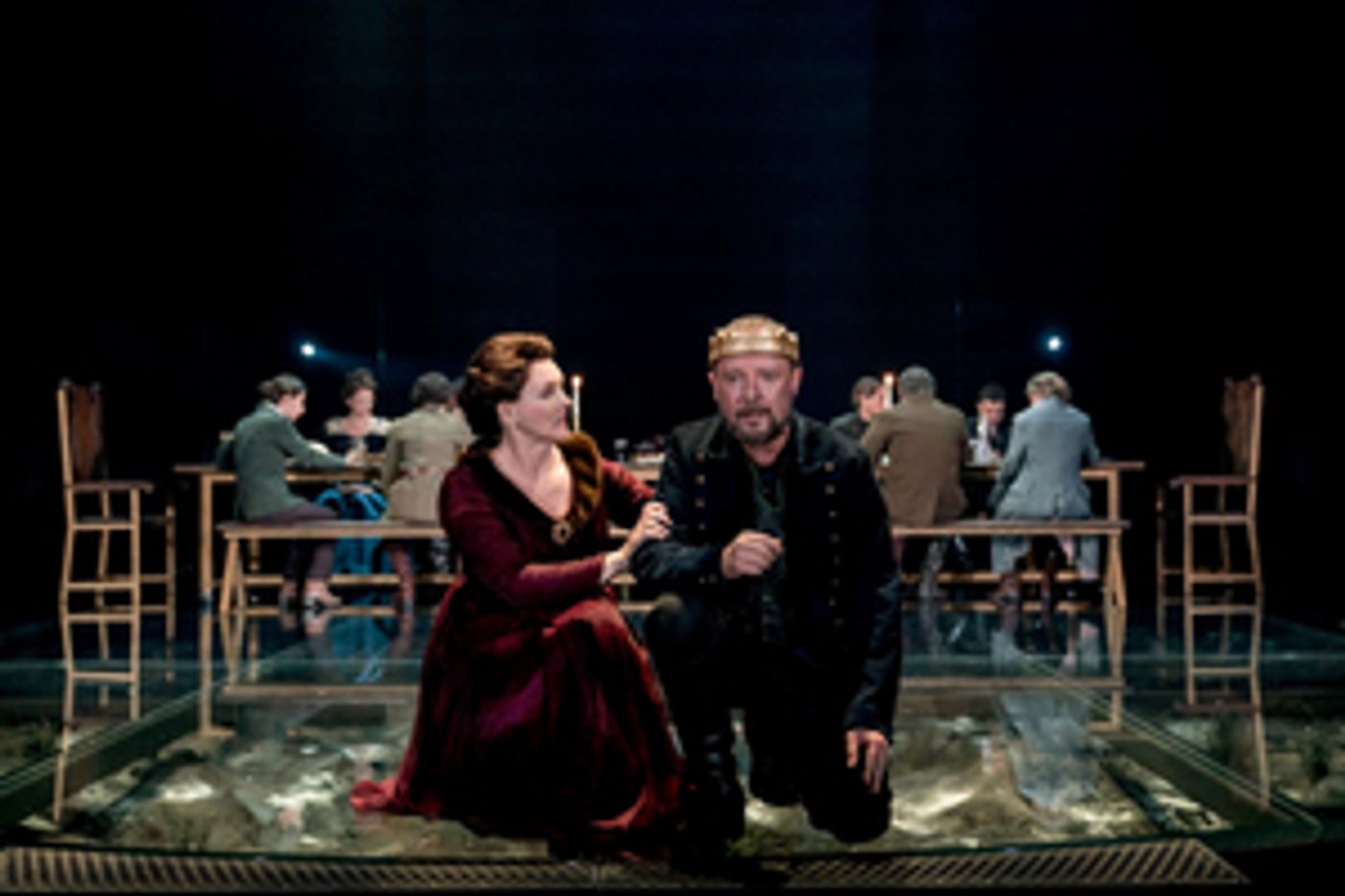Review: MACBETH, Chichester Festival Theatre

![]() The time is now for the Scottish Play; over the past couple of years there has been a glut of Macbeths, no doubt inspired by the extraordinary ongoing political events. This time it's Chichester's turn, with director Paul Miller reuniting with John Simm for a second Shakespeare (the pair teamed up for Hamlet in 2010), and Dervla Kirwan taking on the role of Lady Macbeth in this, the final production of the summer season.
The time is now for the Scottish Play; over the past couple of years there has been a glut of Macbeths, no doubt inspired by the extraordinary ongoing political events. This time it's Chichester's turn, with director Paul Miller reuniting with John Simm for a second Shakespeare (the pair teamed up for Hamlet in 2010), and Dervla Kirwan taking on the role of Lady Macbeth in this, the final production of the summer season.
Macbeth is a play of murder, intrigue and war, at once introspective and full of action. All that considered, it can be difficult to know what venue size suits it best; this production is running in the Festival Theatre, however I do wonder whether it might have been more at home in the Minerva - the minimalist set (Simon Daw) at times leaves a lot of open space, and you don't feel quite in on the action.
There are some moments of brilliance, such as Malcolm's forces steadily making their way through the auditorium to reach Macbeth for the climactic battle; this dash of inventiveness adds some dynamism at just the right time. The cauldron scene, too, is something of a showstopper - it combines the primal element of fire with projections of the witches' conjurings on the back screen to great effect.
It's interesting to note that the witches are there nearly every step of the way, either watching 'invisible' from the edge of the stage or actively getting involved in events to ensure things work out their way. It's an intriguing blend of the supernatural with a revenge plot; each witch revealing her identity after a bit of meddling is perhaps a little overdone, though it's worth it for this extra sinister edge.
This ties in with the very dark tone of the production to create something weighty and gripping. Unfortunately this makes the Porter scene stick out like a sore thumb; it would feel more natural to align it with the mood of the rest of the production (Polly Findlay's 2018 RSC production is an excellent example of this) rather than go down the traditional route of comic relief, as it doesn't really land with the audience.
There is a relatively large company, and within that a few slightly exaggerated performances (presumably trying to contend with the vastness of the space), though on the whole they serve the story well. Michael Balogun and Beatriz Romilly particularly stand out as Macduff and Malcolm, respectively; Balogun is controlled yet forceful, and shows Macduff to be a man of principle - and Romilly brings a naïvety and vulnerability to Malcolm, as well as a hidden reserve of strength.
You certainly wouldn't want to mess with Dervla Kirwan's Lady Macbeth early on, as her determination and ambition overcomes all reason, but she seems to quickly regret helping her husband down that path - she's set aside while he seeks to secure their position, wanting more when she'd rather just concentrate on what they've got.
John Simm has great command of the language, and clearly relishes Macbeth's position as poetic warrior king. There are several great soliloquies in the play, but Simm's interpretation of two in particular are the highlights of the entire production; the combination of curiosity, temptation and fear that underlies "Is this a dagger which I see before me" is enthralling, and the quiet grief and understated performance of "Tomorrow, and tomorrow, and tomorrow..." is genuinely moving.
It's clear that the words are meant to be the stars, and overall this works well to create a spellbinding spectacle about the corrupting nature of power. Given the current state of affairs, it couldn't have come at a better time.
Macbeth is at Chichester Festival Theatre until 26 October
Picture credit: Manuel Harlan
Reader Reviews
Videos

